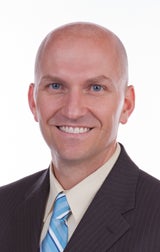Head in the Game: Where Mental Health and Sports Meet
June 9, 2021World #2 and tennis phenom Naomi Osaka recently withdrew from the French Open ahead of the start of the tournament after disagreeing with officials about the requirement to do news conferences, which she feels negatively affect her mental health. In the days since, the sports world has been atwitter about the impact of a top player exiting a major tournament, but it’s also sparked a conversation about the importance of mental health in sports.
As a pediatric orthopaedic surgeon, I often see injuries related to overuse. As kids start organized, year-round competitive sports at younger ages, we more frequently see sports injuries we used to associate with older players and even the pros. But Naomi Osaka’s headlining announcement highlights the fact that our kids can be susceptible to mental overuse injuries, too – the result of ongoing and mounting pressure to perform, resulting in a toxic combination of anxiety, stress and depression that can impact them into adulthood.
Let me begin by saying the benefits of youth sports are well researched and well documented. Getting kids involved in sports can build their self-confidence, develop teamwork and camaraderie, encourage physical activity and instill understanding of what it means to be a good winner and a good loser.
The catch to these benefits, though, is that, like many skills, they require good coaching. As parents, teachers, coaches and fans, it’s up to us to help our kids balance the ups and downs of sports in a healthy way. Overbearing, intimidating or otherwise negative communication can turn any benefits our kids learn in sports upside down – eroding confidence instead of building it, sowing doubt instead of positivity and starting a ticker tape of negative thoughts inside our kids’ heads.
How you play the game
Think of sports as a microcosm for growing up, a model that teaches our kids the lessons of life in four quarters or two sets or nine innings. Just like bringing practiced skills to a game situation, kids can develop and apply the “mechanics” of life to their sport of choice. For example, after striking out, a young softball player can throw her bat or quietly resolve to try again next time. After seeing a teammate miss the winning goal, a soccer player can either respond with compassion or with resentment.
In this way, the familiar saying, “It’s not if you win or lose, it’s how you play the game” applies, too. Our kids will make mistakes. It’s up to us to teach them how to respond to those mistakes in a healthy way. As adults, what we say to our kids matters; it becomes their inner voice. Use that opportunity to help them develop lifelong mental health skills – things like managing anxiety, dealing with stress and acknowledging loss are important skills that can serve our kids far beyond the championship game. And, just like developing “the fundamentals” in practice, practicing mental health skills can prevent mental “overuse injuries” like burnout, anxiety and depression.
The car ride home
As a parent, if you’re wondering how to make a positive impact, I encourage you to focus on the car ride home. If you think about it, this can be either a precious and valuable time for parents and kids, or a stressful one. Whether you’re driving home from a crushing loss or a thrilling win, acknowledge that just being out there on the field might be stressful for your child. Don’t focus on what might have gone wrong; listen instead to what your child felt went right. Talk about what they’re looking forward to next time. Or talk about anything other than sports. By letting your child know that, win or lose, you’re on their team, you can strengthen your bond, support their mental health and foster their love for their sport. Remember that your child’s care team has a deep bench: if you notice any change in your child’s behavior, including disrupted sleeping or eating habits, reach out to your child’s pediatrician for professional help.
And remember: as a parent, you are your child’s first and best teacher, and always their biggest fan.
About the Author
Fellowship-trained in in pediatric orthopaedics, Dr. Kerry Loveland joined Valley Children’s as a pediatric orthopaedic surgeon in August 2013, and is the medical director of orthopaedic surgery. His areas of clinical interest include all aspects of pediatric orthopaedics as well as sports medicine and scoliosis treatment.
